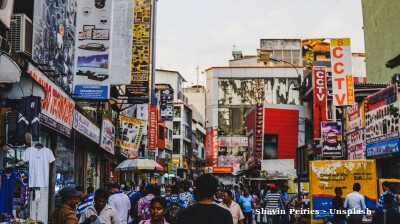“I have no choice. I force myself to clear land; survival is the priority now,” says Kee Hone, 59, his face etched in sadness and despair. “I started a sustainable farming system between 1998 and 2000 to reduce deforestation and establish a model alternative to shifting cultivation, which has been ingrained in our way of life for decades” he added having dedicated years to agriculture and environmental preservation.
In the dense forests of Myanmar’s conflict-ridden Chin State, farmers face an impossible choice: continue sustainable farming, which produces crops for indirect market consumption, or revert to slash-and-burn agriculture for immediate survival. Since the military coup, the ongoing conflict has forced civilians to flee their homes and seek refuge in forests and jungles, becoming internally displaced people (IDPs) to escape violence.
Chin State, situated in a hilly region of western Myanmar, has long relied on slash-and-burn agriculture. The mountainous terrain is fragile, and the soil easily loses water and nutrients. With climate change, unpredictable weather, and a growing population, local farmers struggle with declining agricultural yields, forcing them to depend on shifting cultivation.
Kee Hone explains that his decision to start a sustainable farming system was not mandated by any government officials or local leaders. “I’ve been working on this for over two decades. Many local farmers accepted my guidance and followed my lead. But after the coup, everything fell apart,” Kee says in an interview with bno IntelliNews. Sustainable farming in Chin State primarily focuses on market-dependent crops such as coffee, tea, the elephant foot yam, and avocado. Before the coup, residents of Mindat Township could sell their produce in Yangon supermarkets.
However, since the conflict erupted across the country, logistical and transportation challenges have made it nearly impossible to get these goods to market. “These products are perishable; they spoil within a day or two. We must sell them fresh. But now, due to the conflict, truck drivers must avoid battle zones or hide for days, delaying transport. Logistics costs have skyrocketed. If we don’t reach the market on time, we lose not only our produce but also our transportation fees,” Kee Hone laments.
This dire situation has forced not only farmers like Kee Hone, who deeply care about the environment, but also many others, to abandon sustainable farming and return to slash-and-burn agriculture.
“For the past 15 years, hillside farming has been declining. But when the coup happened and fighting broke out, residents of Mindat Township fled into the forests to escape the war. With no access to rice or other essential supplies, they resumed shifting cultivation for survival. Within a year or two, its rate has skyrocketed again,” says Salai Yaw Mang, secretary of Mindat Township’s self-administration. “We can’t stop them because this is about survival. If they don’t farm, they will starve to death,” he adds. Residents of Chin State are aware of the importance of protecting natural resources, but economic hardships prevent them from following through on their environmental concerns.
“For now, we allow them to do what they must to survive as IDPs. Even though this will further harm the environment, once the military is gone, we must establish laws and regulations to protect wildlife and nature,” Yaw Mang explains.
Climate change and the continued practice of shifting cultivation lead to decreasing crop yields, worsening food security as the population grows. Without adopting new agricultural techniques, both the environment and livelihoods remain at risk. “I continue environmental education as much as possible, but people are struggling to survive. Before, they listened to our advice on sustainable farming. Now, if I try to stop deforestation, I become the enemy,” Kee Hone says, expressing his frustration.
“If this continues for another ten years, this region will face famine. Shifting cultivation relies on fertile soil, but once the land is exhausted, crops will no longer grow. We are heading toward a devastating food crisis that will leave people malnourished and fighting for survival. It breaks my heart to see everything I worked for collapse. Right now, I have no choice but to clear land for shifting cultivation to grow rice for survival,” he adds.
Features

Ambition, access and acceleration – Uzbekistan’s Startup Garage opens free academy for entrepreneurship
Aim is to train 50,000 young founders by 2030.

Ukraine’s growing energy crisis promises a cold and dark winter
Since the summer, Kyiv has changed tactics. Given the almost complete failure of Western oil sanctions to curb Russian oil exports, it has been targeting Russian oil refineries. The Kremlin has struck back, targeting Ukraine's power system.

Russia, China sign off on Northern Route shipping deal to slash global freight times
Russia and China have signed a landmark agreement to develop and commercialise the Northern Sea Route (NSR), after Beijing tested the route last month, that could slash Europe-Asia cargo transit times and challenge the primacy of the Suez Canal.

Sri Lanka’s economic escape
Sri Lanka’s recovery over the past year reads like a narrow escape rendered into a cautious, albeit unfinished success story.




